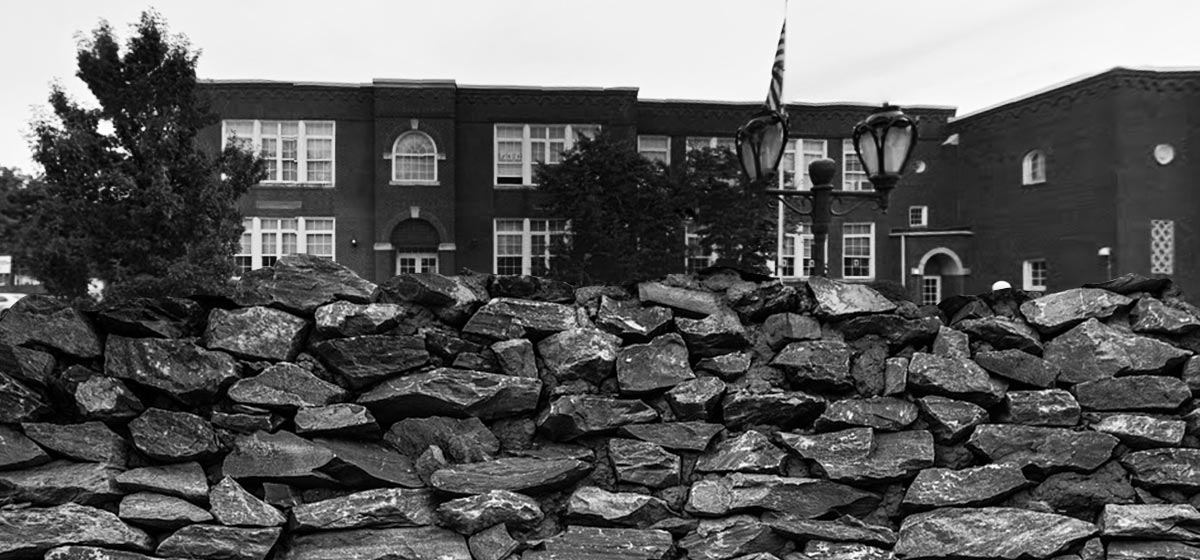Don’t mess with Mel Messmer

My buddy Bill Downes and I were in good spirits. It was 1960, and after enjoying a light movie at the theater, we were strolling along California Avenue, the main street of Avalon, a small suburb north of Pittsburgh. It was a steamy, red-sky summer evening. We were chattering away, when we suddenly heard a voice to our right, a hoarse command issued in our direction from across the street.
“Hey, you! Come here.”
We looked over and saw that—gulp—Mel Messmer was summoning us. He was sitting alone at the far end of that quintessential landmark in Avalon known as The Wall, the four-foot-high masonry of black stone in front of the elementary school that was the congregating place for generations of the town’s teenage boys. We slowly crossed the street toward Mel Messmer, like a pair of woodchucks crossing a highway.
At 12, I didn’t know much about Mel Messmer. I knew that he was in his late teens or early 20s. I knew that he lived just a few hundred yards from my home. And above all, I knew that Mel Messmer was absolutely no one to “mess” with. He was as tough as a turtle shell, and the few macho peers who had dared to confront him had the bruises to prove it.
He had unruly dark brown hair combed back and a V-shaped weight-lifter’s body; his shoulders seemed almost as wide as he was tall. He wore a T-shirt, blue jeans and grimy black leather boots with silver buckles.
As we approached, he sat leaning forward, elbows resting on his thighs. His flat gray eyes stared us down and cemented our feet to the sidewalk.
“You see that down there,” he said, gesturing with his thumb and glaring at the other end of The Wall, about 40 yards away. As usual, at least 10 high school boys were milling around The Wall, shooting the breeze. “I want you to tell them punks that Mel Messmer wants all of them off The Wall and out of here in one minute.”
He seemed to be speaking directly to me. I was petrified as the implications of my assignment sank in. I was barely five feet tall and weighed 110 pounds. I’d be an eighth grader in September, and the thought of approaching a cluster of bigger, older boys and ordering them around seemed like suicide.
But Bill and I turned slowly and walked toward the boys at The Wall, like condemned prisoners trudging to execution. When I got to within 10 feet of the crowd at The Wall, I stopped.
“E-e-excuse me,” I said my voice cracking and my brain barely working. “Ah, Mel Messmer said… he wants all of you… to, ah, leave this corner… in the next minute.”
The boys—I was so nervous that their identities failed to register with me—stared at me, as if they didn’t believe what they were hearing. I shifted my weight uncomfortably from one sneaker to another. They looked up the block and saw Mel sitting at the other end of The Wall. Mel turned his head slowly, looked their way, and glared. The seconds crawled by.
Then, to my utter astonishment, all the boys wordlessly began to vacate The Wall. Some went into a soda fountain nearby and others scattered in all directions. I looked around and miraculously The Wall was now empty and the street was deserted.
Suddenly, a giddy feeling of power washed over me, and I lost my perspective completely: I was as mighty as—as Moses parting the Red Sea in The Ten Commandments, a movie that had gripped me a few years earlier.
It wasn’t until much later that I regained my senses and realized that, oh, yes, Mel Messmer had something—everything —to do with the outcome. My ability to get a group of older, bigger boys to do my (or rather, his) bidding proved yet again that Mel remained Avalon’s dominant young male. Word of this incident gradually spread and invested Mel Messmer with an even more intimidating reputation, which may have been his motive from the start. In such small increments are the mighty fortifications of local legends gradually built.
This random encounter with Mel Messmer on a summer evening in 1960 was an early lesson that the object of power is power. And for me, the exercise of power, even if it was vicarious and only temporary, seemed as the good as the real thing. As John Lehman, the former Secretary of the Navy, observed, “Power corrupts, but absolute power is really neat.”
With California Avenue now as quiet as the deepest wilderness, Mel Messmer basked in the glory of being The Wall’s sole occupant, his status as Avalon’s alpha male confirmed. With my own peculiar sense of new-found authority, I walked a short distance with Bill Downes before we parted ways. I said a cheery good night to him and smiled all the way home.


